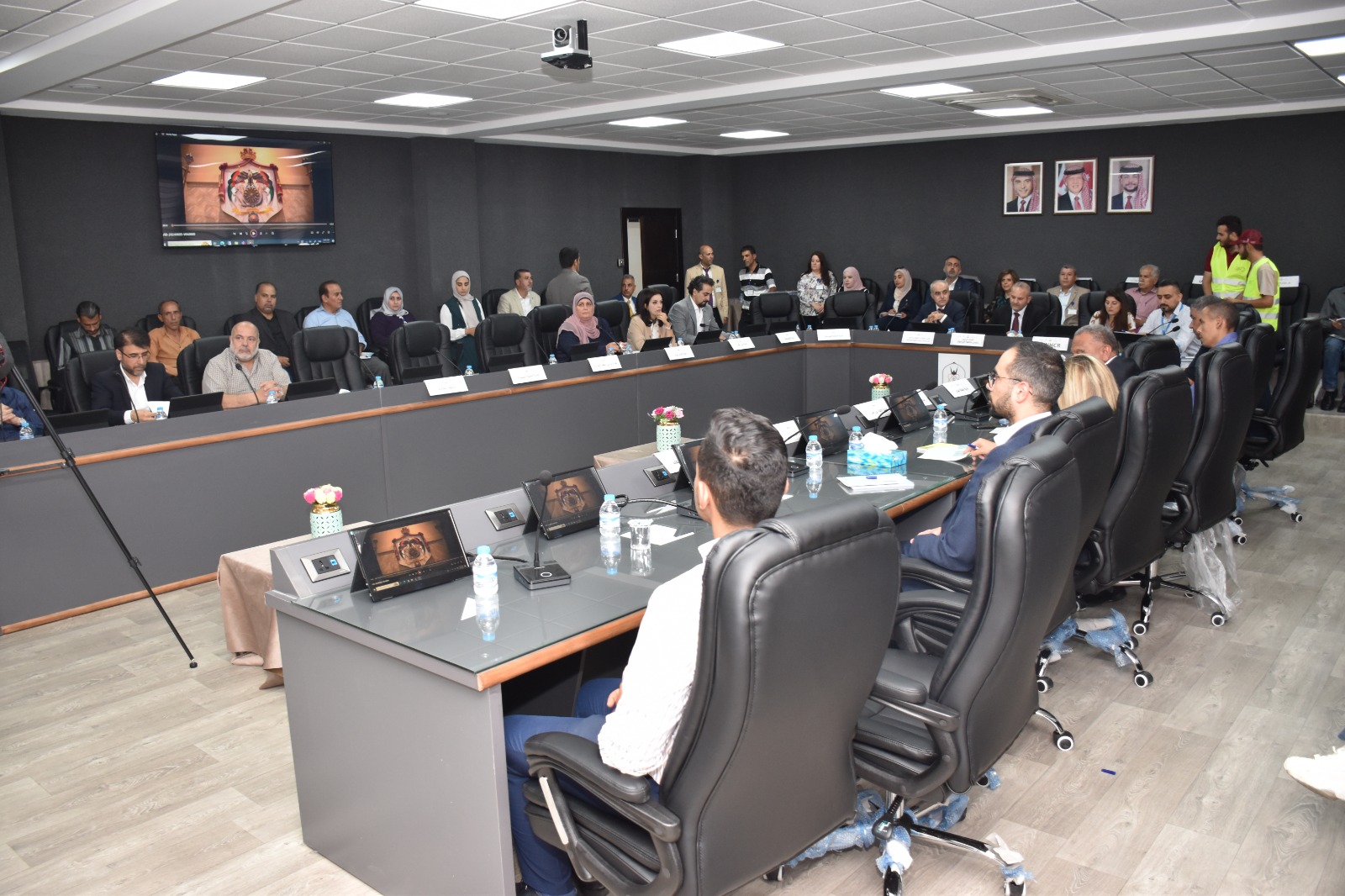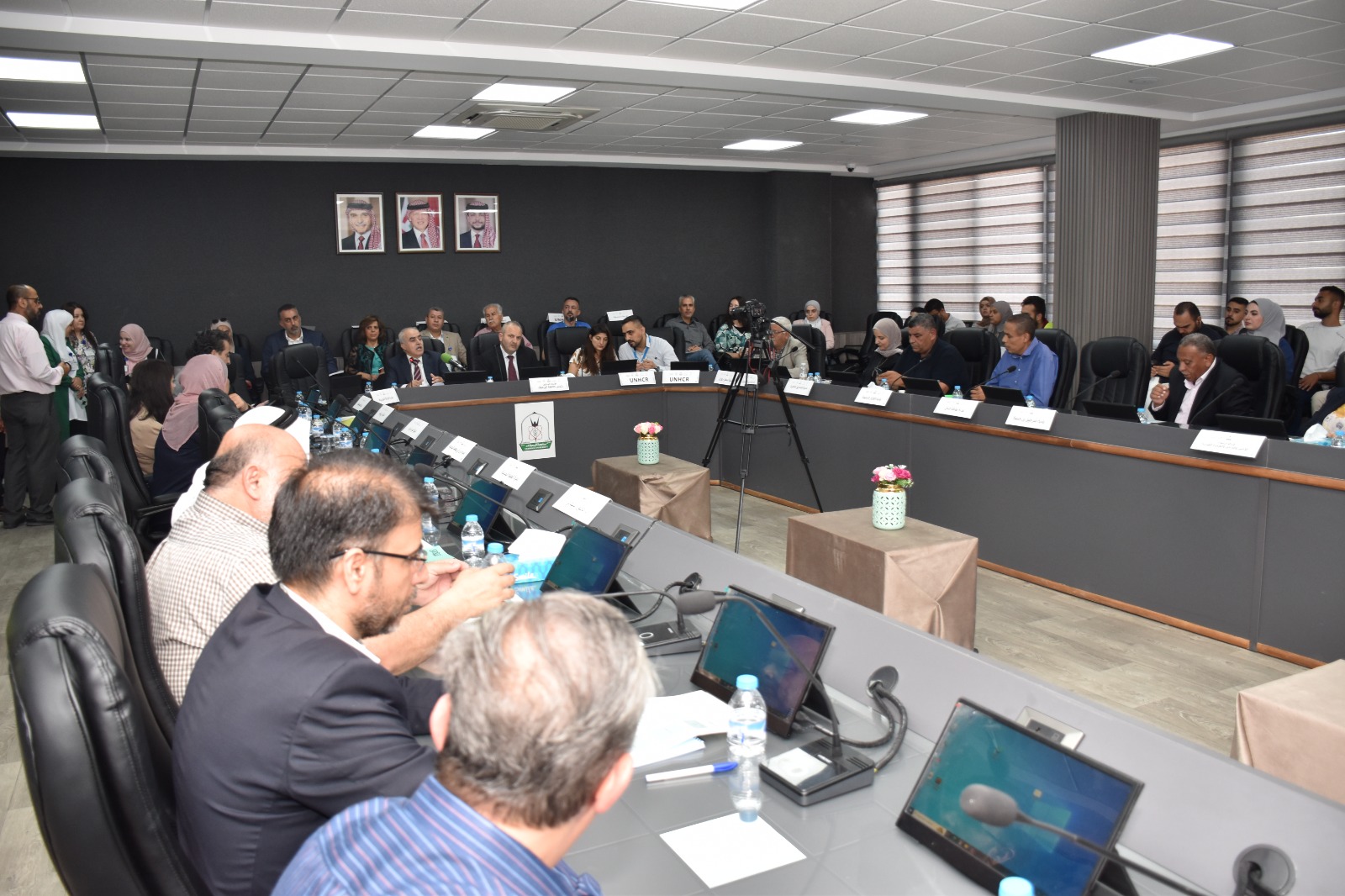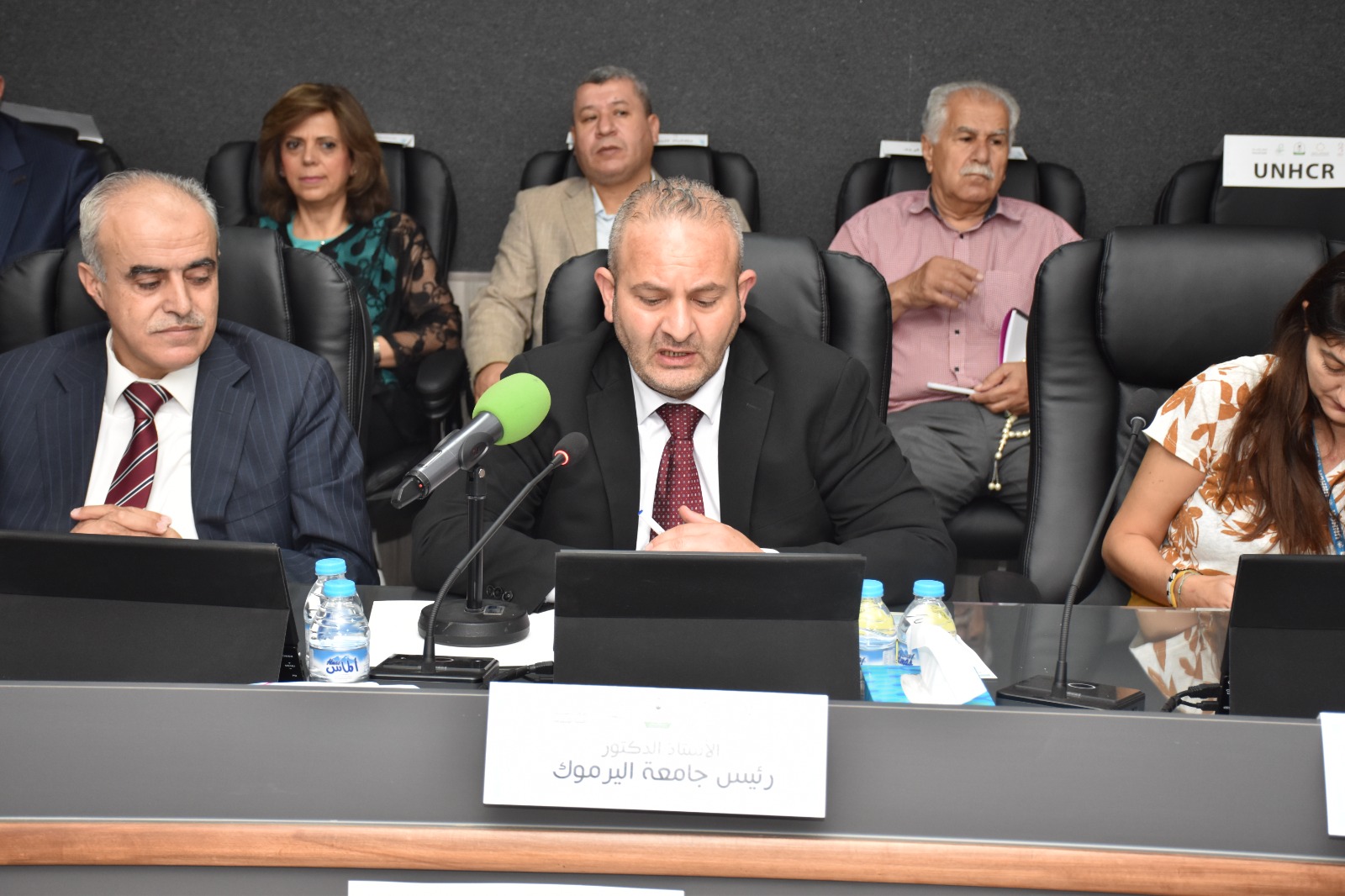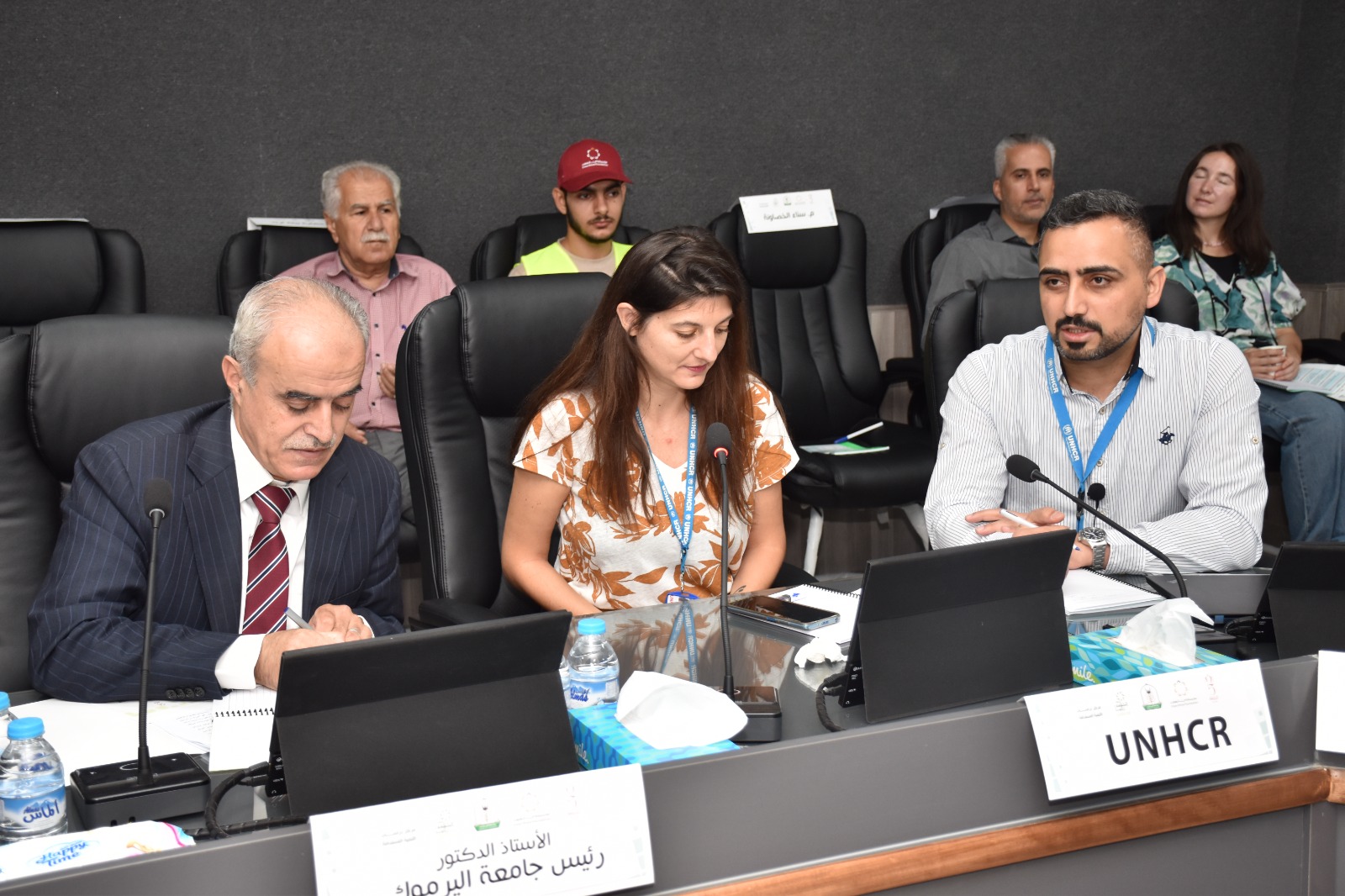
On behalf of the President of Yarmouk University, the Vice President for Planning and Development, Scientific Research and Quality Affairs, Professor Samer Samarahh, sponsored the opening of the activities of the symposium titled "Population Dynamics and Patterns of Urbanization in Jordan". The activity was organized by the Center for Sustainable Development Studies and Queen Rania Center for Jordanian Studies and Community Service at Yarmouk on the occasion of World Population Day, in the presence of the Director of the Office of the United Nations High Commissioner for Refugees in Irbid, Marjorie Cabrol.
Samarah said that understanding and analyzing population dynamics accurately is essential to develop effective policies and strategies that promote sustainable development and improve the quality of life for citizens, pointing out that the symposium aims at exchanging ideas and experiences on how to improve public policies and strategies to achieve sustainable development goals in Jordan. He then pointed out that Jordan encounters various challenges related to rapid population growth, global internal and external migration rates, economic changes, and other factors that affect population distribution and urbanization patterns in cities and rural areas alike; therefore, it is necessary to think strategically and carefully plan to ensure a balance between population growth and sustainable urbanization. Moreover, Samarah stressed that Yarmouk University believes in the importance of solving the problems resulting from the increase in the population growth, unemployment, and poverty, appreciating the great role played by municipalities and local councils of services in this regard.
The Director of the Center, Dr. Abdul Basit Athamneh, said that the establishment of the Center for Sustainable Development Studies at Yarmouk University came to achieve the University’s vision to become a center for excellence in providing pioneering research, promote sustainable development, achieve several national goals, adopt an integrated approach to research and innovation, participate in proposing participatory solutions with academia, civil society, the public and private sectors, and municipalities, and ensure the achievement of sustainable development goals at the national level. He continued: The population numbers are affected by many demographic, economic and social factors, and vary from one region to another according to local and global conditions, pointing out that Jordan is a vivid example of rapid population growth. He then stressed the importance and role of municipalities in providing the legal and regulatory framework that helps achieve sustainable development by managing population growth in a sustainable and balanced manner, thus establishing a balance between the current and future needs of communities.
In the context of local administration, Athamneh said that municipalities play a key role in absorbing the effects of population growth and ensuring sustainable development through land planning, urban development, family planning and reproductive health, and preserving the environment and natural resources. He also pointed out that the United Nations High Commissioner for Refugees (UNHCR) plays an important role in helping refugees and displaced persons globally through the UNHCR's endeavor to provide the necessary support to individuals affected by conflicts and disasters. The Commissioner, as he said, provides several services including protection, shelter, education, and health care, which contributes to providing a more stable and improved environment for living, which directly affects population growth in the affected areas.
For her part, Cabrol thanked Yarmouk University for organizing this seminar, which discusses an important topic for UNHCR, since 80% of refugees live in urban areas. She said that the City of Irbid is an example to be followed concerning the qualitative initiatives it provides to refugees. The UNHCR Field Section Officer, Osama Al-Omari, gave a presentation on the results of the "Refugee Vulnerability Assessment Framework", in which he presented multisector indicators, such as housing, health, education, economic empowerment and basic needs, which indicates a rise in the poverty rate from 57% to 67% from 2021 to 2023. However, the symposium, which was attended by mayors, members of municipal councils, researchers and specialists from international organizations and civil society institutions, included two sessions: the first was entitled "The impact of population increase on the services provided by municipalities and international organizations", and the second was entitled "The impact of population growth on urbanization patterns in Jordan".






